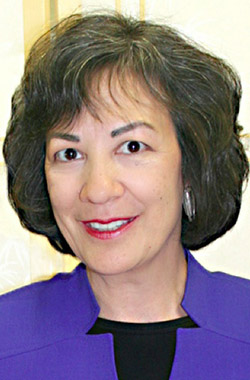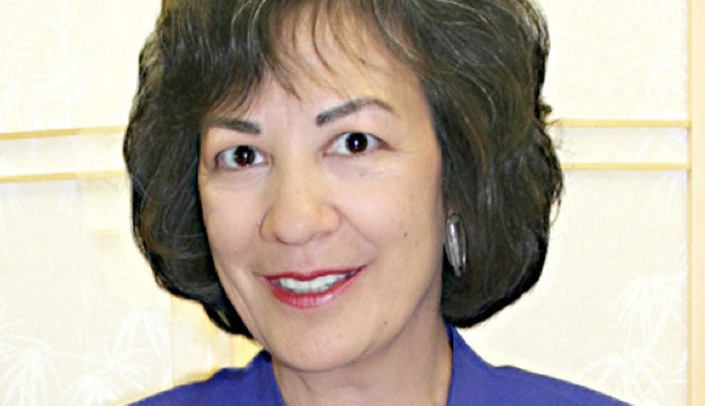When Sharon Ishii-Jordan, PhD’s, American of Japanese Ancestry (AJA) grandfather and Bohemian American grandmother got married, they had a destination wedding in Red Oak, Iowa. Because it would have been illegal in Nebraska, due to miscegenation laws.
 |
Sharon Ishii-Jordan, PhD |
Dr. Ishii-Jordan’s roots run deep, in Omaha and in America. But, she said, members of her family still occasionally get asked, “Where do you come from?”
Dr. Ishii-Jordan, former associate dean of the Creighton University College of Arts and Sciences and a professor emerita of education at Creighton, recently spoke on the history of Asians in the United States in a presentation sponsored by the Munroe-Meyer Institute’s Diversity and Inclusion Committee.
Her Zoom talk, “Asian American: Yellow Pearls or Yellow Peril?” touched on historic turning points, discrimination and achievements. Dr. Ishii-Jordan put into context the increased hate, harassment and even violence perpetuated against Asian Americans during the ongoing COVID-19 pandemic.
One group has tallied more than 3,800 reported incidents of anti-Asian race-based hate in the past year, Dr. Ishii-Jordan said.
She quoted Anita Jack-Davies, PhD, of Canada’s Queen’s University, who recently wrote, “Wherever a pandemic goes xenophobia is never far behind.”
It’s happened before. Asian Americans have been blamed for outbreaks multiple times throughout U.S. history. With resulting backlash each time.
Dr. Ishii-Jordan addressed how, through stages, discrimination against any group can progress, and what starts out as jokes and words can eventually lead to violence and deaths.
“We have to break that chain,” she said.
She also noted contributions and triumphs of Asian Americans through history, including the 442nd Regimental Combat Team/100th Battalion, the most decorated unit per capita in U.S. military history. The all-Nisei regiment was nicknamed “the Purple Heart Battalion” for its service during World War II, when many AJAs were being held in internment camps. The 442nd/100th was awarded 21 Medals of Honor, 52 Distinguished Service Crosses, and were later named “honorary Texans” for famously having rescued the “lost battalion” in the Vosges Mountains of France in 1944.
She closed with the words of Martin Niemöller and the lines of his famous anti-Nazi poem “First they came.”
